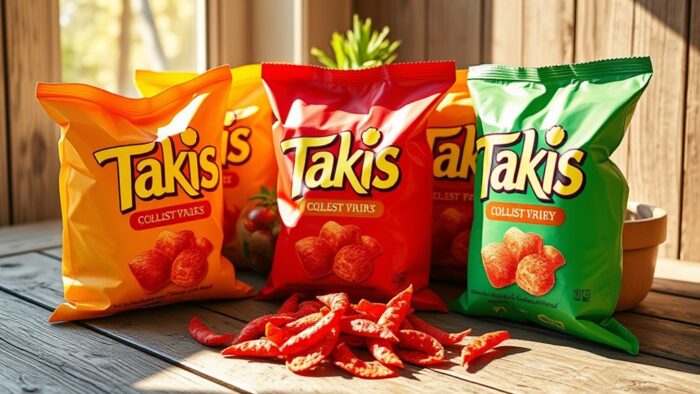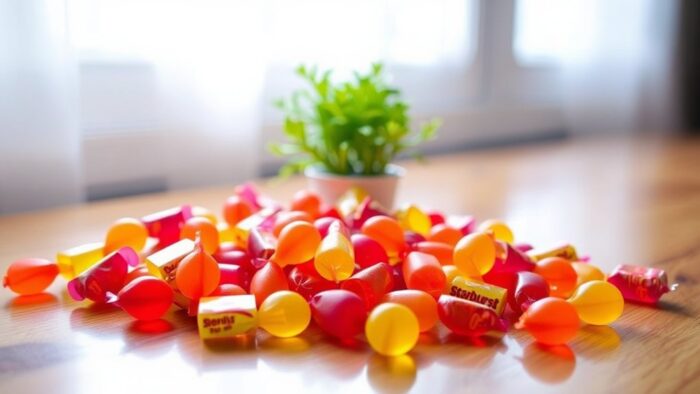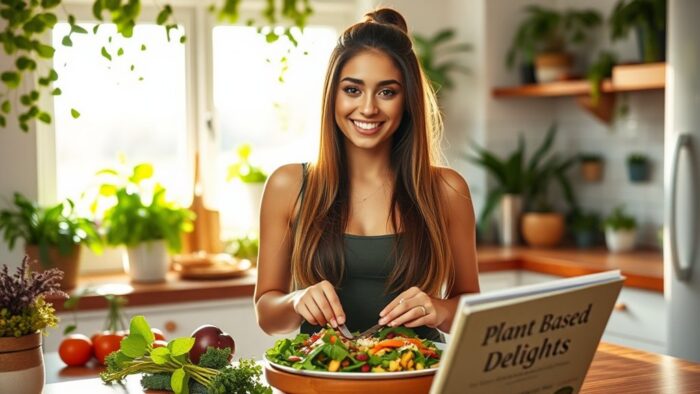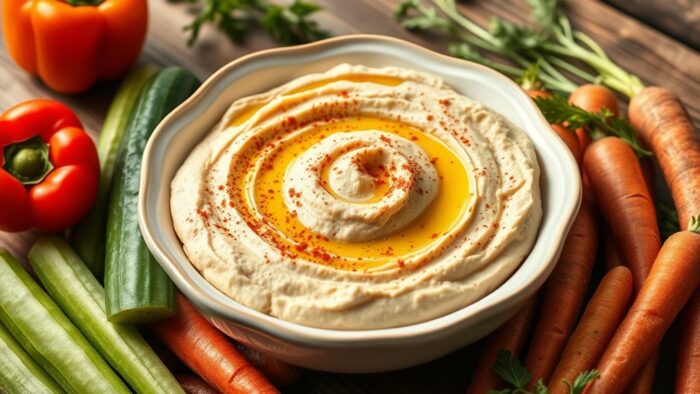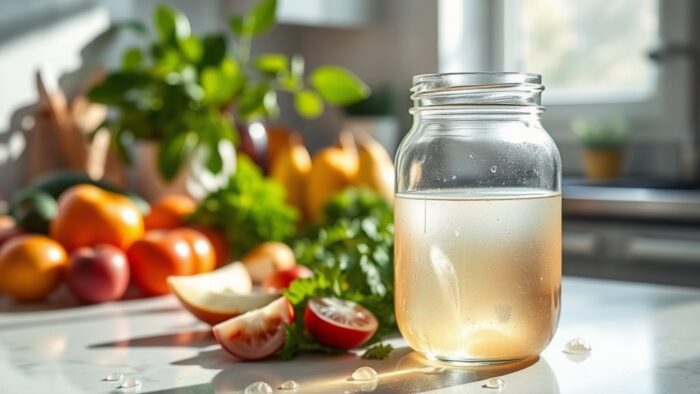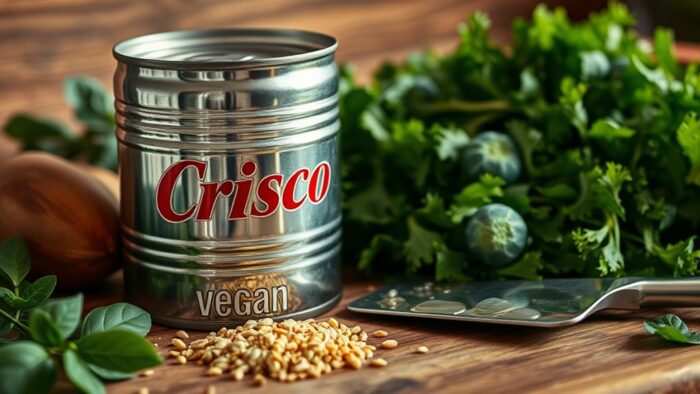Is Boba Vegan?
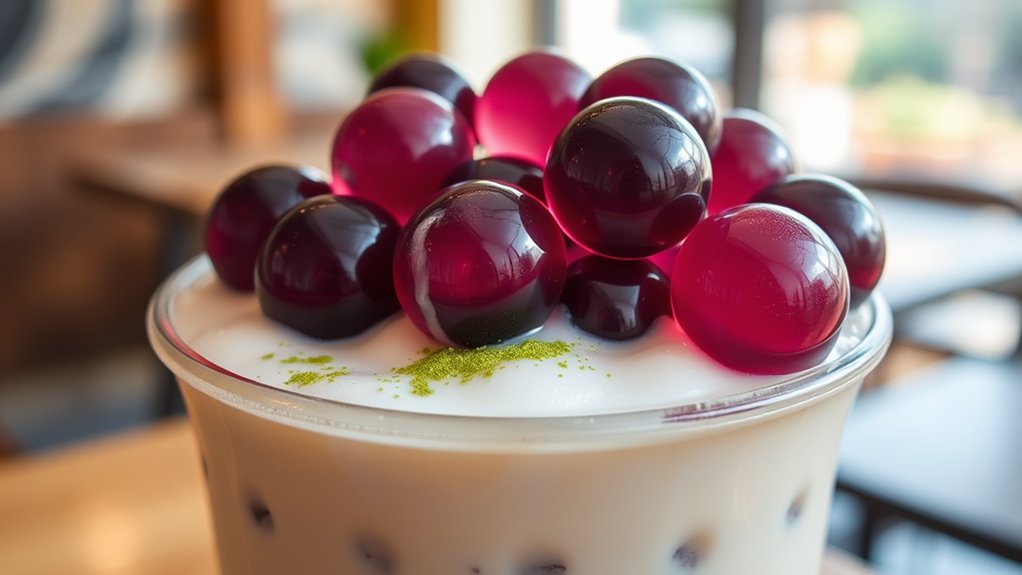
Are you wondering whether your favorite boba, or bubble tea, can align with your vegan lifestyle? You’re not alone! Many people are curious about the ingredients that go into this popular drink, especially when it comes to dietary preferences. Understanding what makes boba vegan-friendly is essential, not just for your health, but also for making informed choices that reflect your values. It’s important to know what to look for when ordering, from the tapioca pearls to the milk alternatives. Stick around to discover more about how to enjoy boba while keeping it plant-based!
What Is Boba?
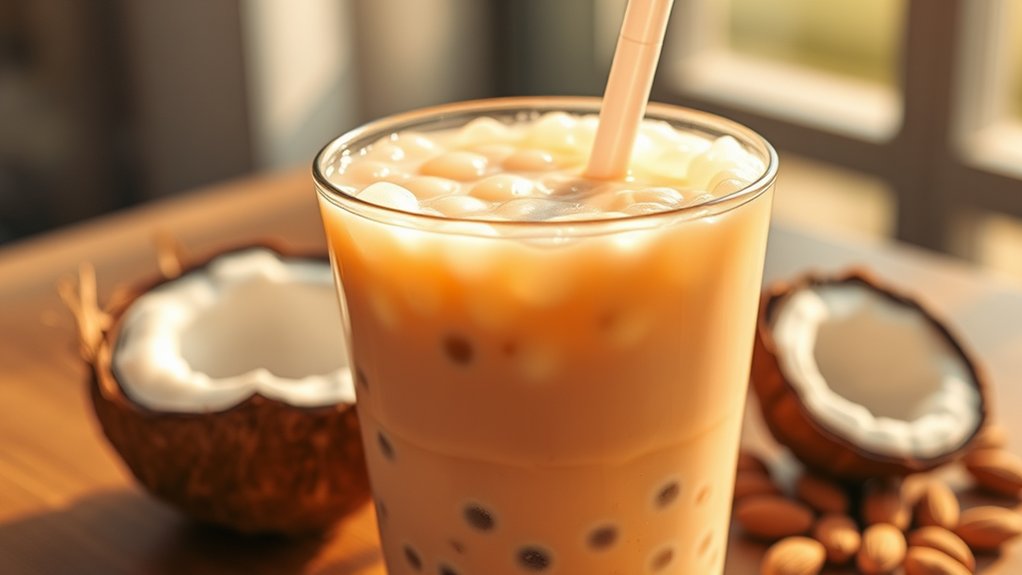
Boba, commonly referred to as bubble tea, is a beverage that originated in the Asia-Pacific region and has become increasingly popular around the globe. At its core, boba typically consists of flavored tea, with milk tea being one of the most popular variations. The defining feature of this drink is the chewy tapioca pearls that are added, which are made from tapioca starch. These pearls provide a unique texture that distinguishes boba from other drink options.
The term “bubble tea” is derived from the bubbles that form when the drink is shaken, as well as the boba pearls that float within. Many consumers also choose to customize their boba by incorporating non-dairy milk alternatives, catering to various dietary preferences and expanding its appeal.
As boba continues to rise in popularity, particularly among young Asian Americans, it’s becoming a cultural staple in many communities. This growth underscores not only the drink’s widespread enjoyment but also its role in cultural exchange and connection.
Whether you’re new to boba or a longtime fan, understanding its components and variations can increase your appreciation of this delightful beverage.
Is Boba Vegan?
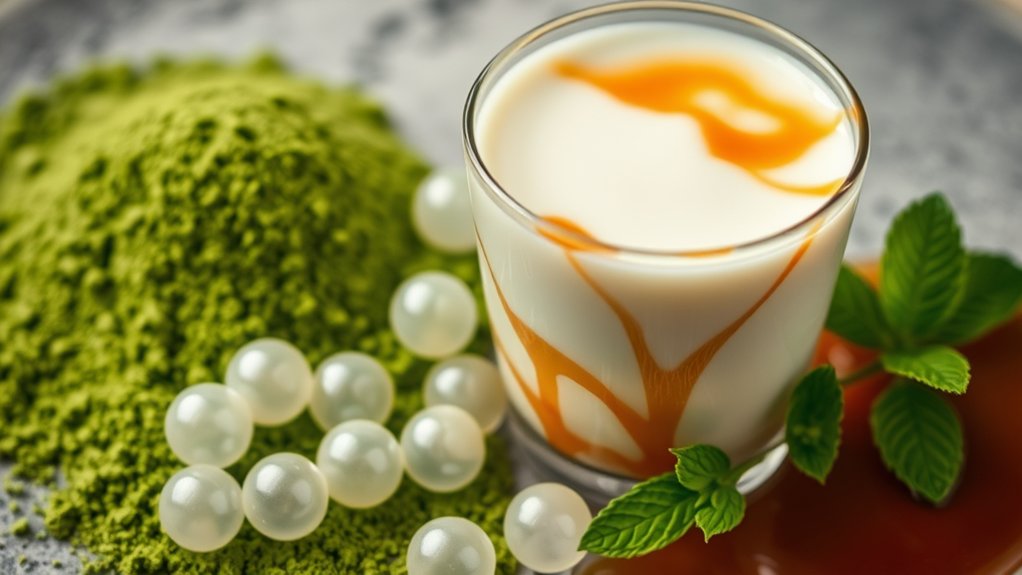
When considering whether boba is vegan, it’s important to look closely at the ingredients used in both the drink itself and its toppings. The main component of bubble tea, tapioca pearls, is usually vegan since they’re made from cassava starch. However, it’s crucial to check if any sweeteners used in the pearls contain honey, which isn’t vegan.
Many bubble tea shops now offer a variety of non-dairy milk options, such as almond, soy, and oat milk, allowing you to customize your drink to fit a vegan lifestyle. To make certain your beverage is fully vegan, it’s a good idea to ask about specific ingredients and any possible animal-derived additives when placing your order.
Fortunately, establishments like Boba Guys and Sharetea are known for their extensive selection of vegan-friendly options, making it easier for those on a plant-based diet to enjoy bubble tea.
Types of Boba
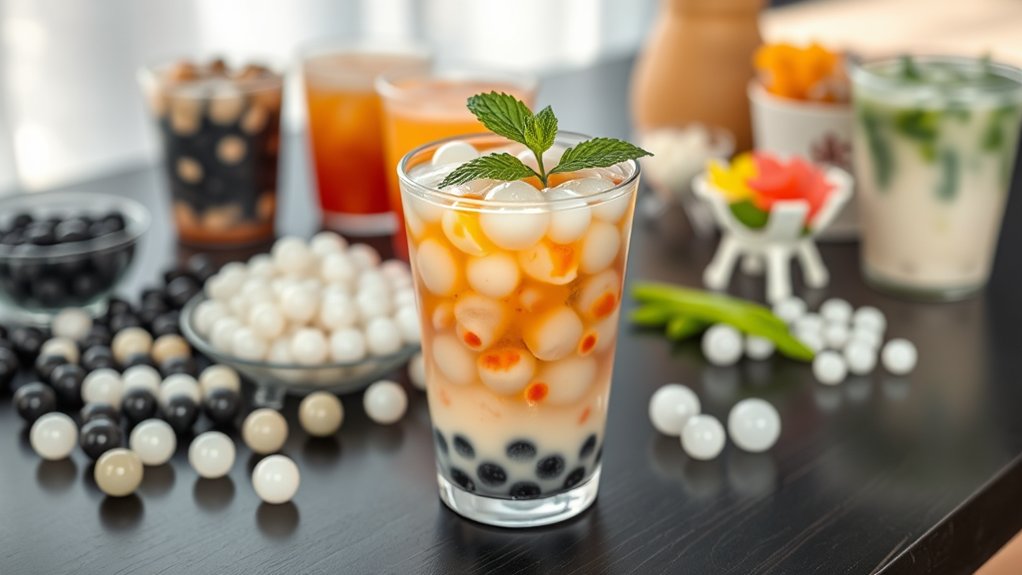
When you look into the different types of boba, you’ll discover a wide range of flavors and combinations that suit various tastes.
Classic choices like black tea and fruit syrups provide unique flavor experiences, while coffee boba is perfect for those who enjoy a caffeine kick.
Plus, with so many customization options and toppings available, you can easily create a drink that’s just right for you.
Now that we’ve covered the types of boba, let’s dive into how to choose the perfect one for your next outing.
Boba Varieties Explained
Boba, also known as bubble tea, comes in various types that offer a range of flavors and textures, appealing to many different tastes. The classic boba features chewy tapioca pearls, which are often enjoyed with black tea and plant-based milk options. This combination provides a foundational taste that many people appreciate.
For those who prefer a refreshing twist, fruit boba is a great option. It typically includes syrups like peach or mango, combined with green tea and non-dairy alternatives, resulting in a drink that’s both fruity and invigorating.
If you’re a coffee lover, coffee boba substitutes traditional black tea with cold-brewed iced coffee, making it an excellent choice for caffeine enthusiasts.
Another interesting variety is popping boba, which adds an exciting element to the drink. These are small, fruit-filled spheres that burst with juice when bitten, providing a unique texture and flavor experience.
Customization is a key aspect of enjoying boba. You can boost your drink with additional toppings such as lychee, grass jelly, aloe vera, and chia seeds. This allows you to create a personalized beverage that suits your preferences, making it a versatile and enjoyable vegan option.
Popular Flavor Combinations
Boba, also known as bubble tea, serves as a versatile base for a wide array of flavor combinations that cater to various tastes. At boba shops, traditional offerings often include a blend of black tea paired with non-dairy milk, sweeteners, and chewy tapioca pearls. This combination is particularly popular among vegan boba enthusiasts who seek delicious plant-based options.
For those looking for something refreshing, fruit boba is an excellent choice. These drinks typically mix fruit syrups, such as peach or mango, with green tea and non-dairy milk, providing a fruity and vegan-friendly experience.
Coffee lovers can look into a different side of boba with coffee boba, which substitutes black tea for cold-brewed iced coffee, offering a unique blend of flavors.
Additionally, many boba shops allow for customization, offering extras like lychee, grass jelly, and aloe vera, most of which are suitable for a vegan diet. Popping boba, made from seaweed extract, is another popular addition that provides an exciting burst of flavor in each sip.
Customization Options Available
When selecting your boba drink, it’s essential to understand the variety of customization options available to increase your experience. Boba tea can be customized with different base beverages, including classic black tea, fruit syrups, or cold-brewed coffee. Each base offers a distinct flavor profile, allowing you to choose one that aligns with your preferences.
Toppings play a significant role in personalizing your boba drink as well. Traditional tapioca pearls are a popular choice, but you can also try lychee, grass jelly, aloe vera, or chia seeds. Each of these toppings adds unique textures and flavors to your drink. For those who want to take it a step further, popping boba is an exciting option. These small spheres burst with juice when bitten, adding a fun twist to your beverage.
If you follow a vegan diet, you’ll be pleased to know that many boba shops provide non-dairy milk alternatives such as almond, soy, or oat milk. This allows you to enjoy your drink without compromising your dietary needs.
Additionally, you can often adjust the sweetness level of your drink and the amount of ice, making sure that it’s tailored to your taste. Many shops also allow for extra toppings, giving you even more ways to customize your boba experience.
Boba Nutrition
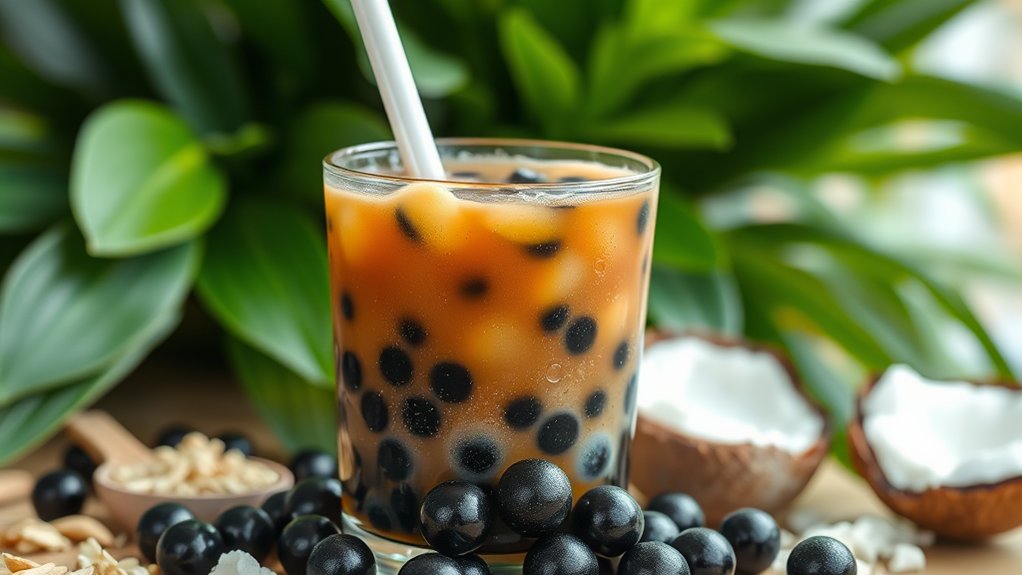
When it comes to boba nutrition, understanding the ingredients in your drink is crucial. The nutritional value of boba drinks can differ significantly depending on what goes into them. One common concern is the sugar content, particularly from sweetened tapioca pearls, which can detract from the overall health benefits of your drink.
It’s worth noting that traditional boba pearls are typically vegan; however, some variations may be sweetened with honey, so it’s important to check if you follow a vegan diet.
On the positive side, the tea base used in many boba drinks can offer health benefits. For example, green tea is known for its high antioxidant content, which can be a beneficial addition to your beverage.
Customizing your boba drink with plant-based milk alternatives, such as almond or oat milk, can boost its nutritional profile. These options often provide additional nutrients and can lower the calorie count compared to whole milk.
However, be mindful of high-calorie toppings like whipped cream or sugary syrups, as they can significantly increase the overall calorie content of your drink.
Making informed choices about your boba drink can help you enjoy it while still keeping your nutritional goals in mind.
Understanding Tapioca Pearls
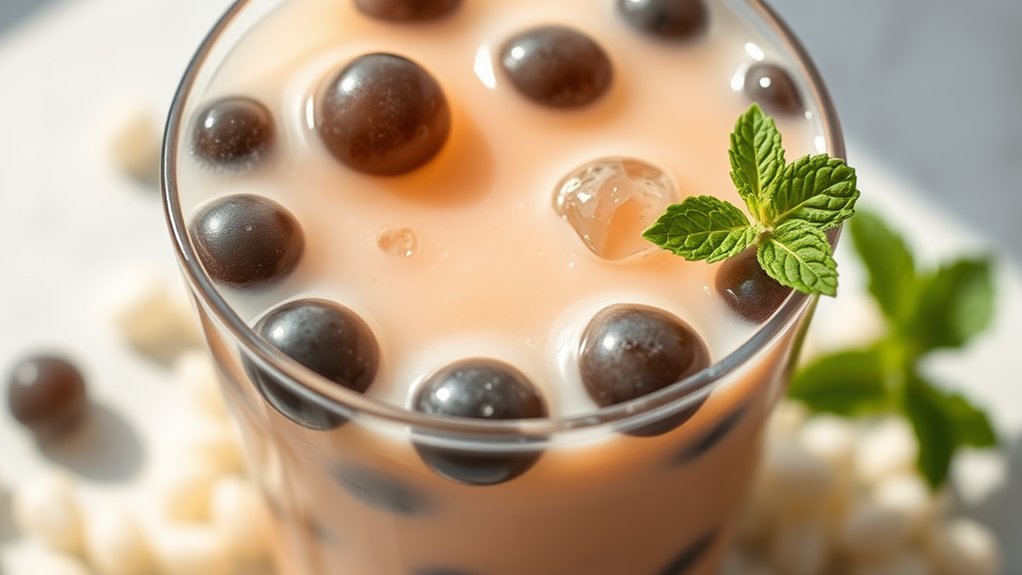
Tapioca pearls are the chewy spheres that form the basis of popular boba drinks, known for their unique texture. These pearls are made primarily from tapioca starch, which is derived from the cassava plant. Importantly, tapioca pearls are vegan-friendly, as they don’t contain any animal products.
The process of making tapioca pearls involves boiling tapioca starch until it reaches a translucent and tender state. Many shops will add a bit of simple syrup to boost sweetness. However, it’s crucial to be aware that some establishments may incorporate honey in their recipes, which would categorize those particular tapioca pearls as non-vegan.
In addition to traditional tapioca pearls, you might encounter popping boba. These are made from seaweed extract and are filled with fruit juice, providing a different texture and flavor experience. Popping boba is also vegan-friendly.
To make sure that your boba drink aligns with your dietary choices, always take a moment to check the ingredients used at your local boba shop. This way, you can enjoy your drink with confidence, knowing it meets your preferences.
Milk Options: Dairy vs. Non-Dairy
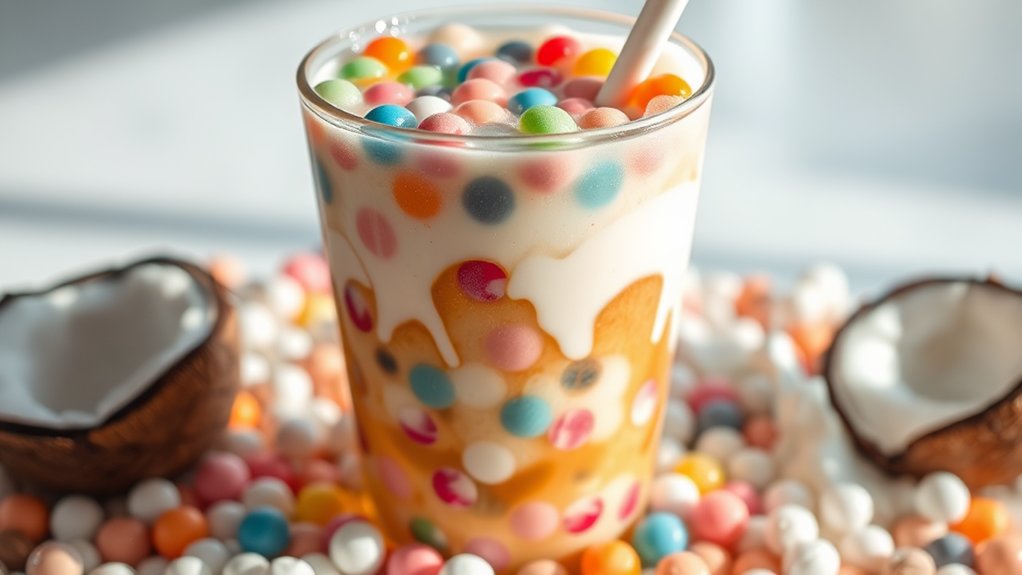
Boba tea, a popular beverage enjoyed by many, traditionally incorporates dairy milk in its recipes. However, as the demand for plant-based options grows, many boba shops are now offering a variety of non-dairy milk alternatives. This change caters to a wider audience, including those who follow vegan diets or are lactose intolerant.
Non-dairy milk options like almond, soy, and oat milk have gained popularity due to their ability to mimic the rich and creamy texture of dairy milk. These alternatives not only provide a satisfying mouthfeel but also improve the overall flavor profile of your boba drink.
When customizing your order, it’s essential to specify that you want a non-dairy milk option if you’re adhering to vegan dietary preferences. Most boba shops clearly label their milk choices, making it easier for customers to identify vegan-friendly selections.
This transparency helps you enjoy your favorite boba beverages while accommodating your dietary needs. Whether you’re a long-time boba enthusiast or trying it for the first time, checking out non-dairy options can improve your experience and broaden your choices.
Vegan Toppings for Bubble Tea
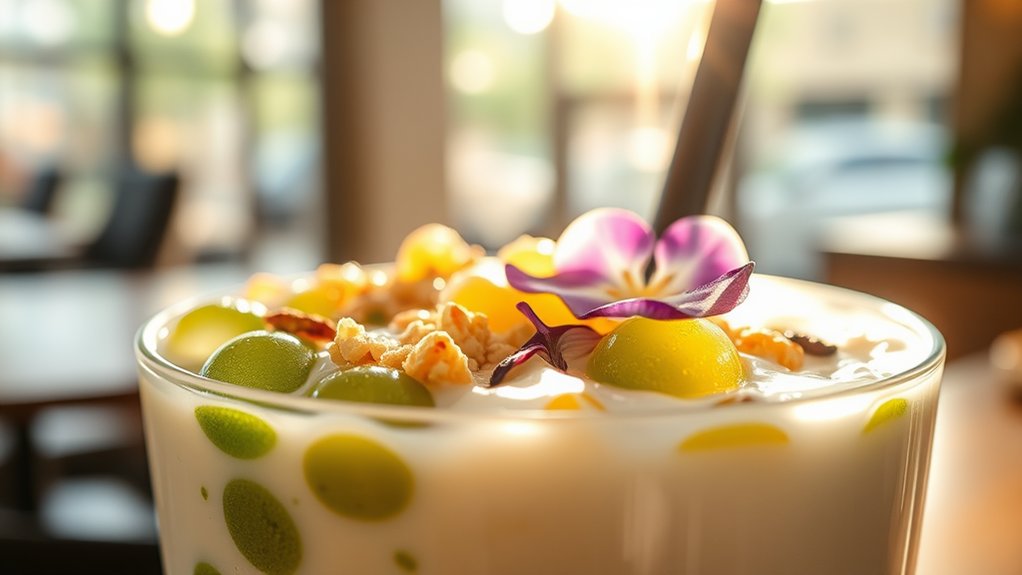
When it comes to vegan toppings for bubble tea, you’ll discover a range of delicious options that fit perfectly within a plant-based diet. Tapioca pearls are a classic choice; they’re made from cassava starch and contain no animal-derived ingredients.
Lychee jelly and coconut jelly are also popular vegan toppings that increase the flavor and texture of your drink.
Another great option is grass jelly, which is derived from the mesona plant. It not only adds a unique taste but also offers digestive benefits and is rich in antioxidants.
Popping boba, which is made from seaweed extract, is another exciting vegan-friendly alternative. These little spheres burst with flavor, making them an enjoyable addition to your bubble tea.
When customizing your bubble tea, it’s important to choose non-dairy milk options like almond, soy, or oat milk to keep your drink vegan.
However, always check the ingredient list for specific toppings, as some may contain hidden animal products like honey or dairy. By being mindful of your choices, you can create a delicious and fully vegan bubble tea experience.
How to Order Vegan Boba
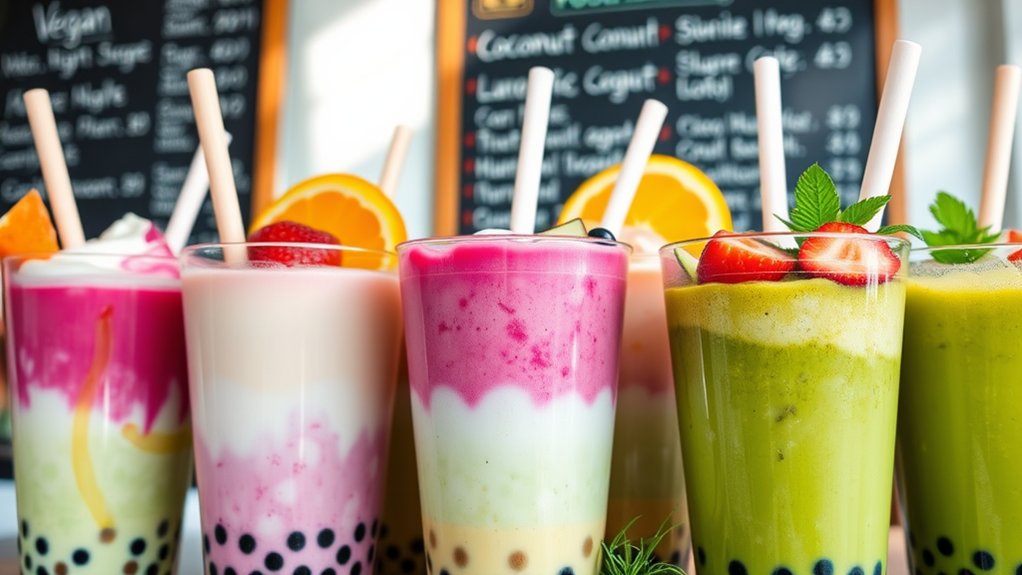
To make certain your bubble tea order is entirely vegan, start by choosing the right base. Plain tea or fruit bubble teas typically don’t contain animal-derived ingredients, making them a safe choice.
When it comes to milk tea, select non-dairy alternatives such as almond, soy, or oat milk to maintain a vegan-friendly drink.
It’s essential to check the tapioca pearls; some may contain honey or other non-vegan sweeteners. Always ask the staff about the ingredients to confirm they meet your dietary requirements.
For toppings, options like grass jelly and lychee jelly are generally vegan, but some others may include dairy or honey, so it’s a good idea to verify before adding them to your drink.
When in doubt, don’t hesitate to ask the barista for vegan options and potential customizations. This approach will help you create a bubble tea that fits your dietary preferences while assuring you enjoy a delicious and satisfying vegan experience.
